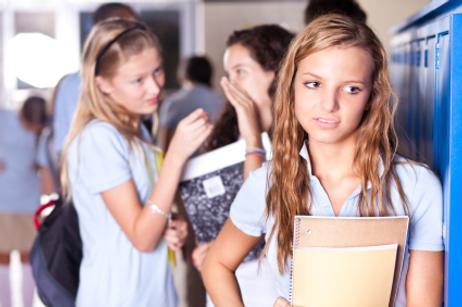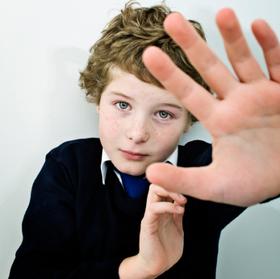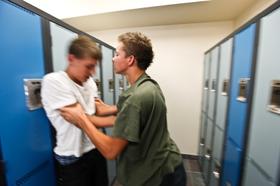While campus violence and bullying have been heated topics in recent years, the wake of a young teen's suicide, allegedly prompted by aggressive bullies, is forcing community members to reexamine the responsibility of schools in the fight against bullies.
Should Schools Pay the Price for Bullying?
In the most recent high school tragedy, 15-year-old Phoebe Prince sadly ended her own life after nine teenagers allegedly harassed and bullied the young girl. According to Slate News, District Attorney Elizabeth Scheibel has filed charges against the nine alleged bullies, further asserting that Phoebe Prince endured three months of extreme bullying under the awareness of some school leaders. According to Scheibel, “The investigation has revealed that certain faculty, staff, and administrators of the high school also were alerted to the harassment of Phoebe Prince before her death.”
This video describes how parents of bullies may be liable.
In fact, supporting these claims are reports from Phoebe’s mother, as well as fellow students, who reported obvious struggles endured by the teen. For example, Phoebe’s mother was so concerned about her daughter’s depression at school that she contacted school officials on multiple occasions, asking about whether or not students were making threats and attacks against her daughter. Furthermore, some students reported seeing Phoebe crying in the hallway outside her classroom, as well as crying in the nurse's office on the day she took her life.
However, many argue that school leaders could not have been fully aware of Ms. Prince's harassment, and furthermore, they are in no way responsible for the young girl’s unfortunate death.
Ultimately, in the wake of this unsettling tragedy, citizens are arousing the debate over whether or not schools are responsible for the misconduct of their students.
Are Schools Truly Responsible for Student Conduct?
In further examining the Phoebe Prince case, some local parents have demanded that the school’s principal resign, while others believe that some school board and administration members should resign as well. While attorneys are sifting through the claims and accounts of witnesses, none of the current evidence proves any correlation between the high school leaders and Phoebe’s death; in other words, even though she was bullied at the school, the school may not legally be responsible.
This video describes a motivational interview.
Those who argue that the school cannot be responsible for Phoebe’s tragedy believe that bullying occurs beyond the boundaries of school walls, especially given the prevalence of social networking today. With technologies such as texting, blogging, email, chat rooms, and other online social networking sites, the opportunities for students to potentially tease and torment each other is seemingly uncontrollable.
While the school's legal accountability is still in question, the Boston News reports that several bullying experts believe that the school’s leadership should have shown greater regard for Phoebe’s safety and wellbeing, given the multiple reports of threats and harassments. Further supporting this stance, Elizabeth Englander, director of the Massachusetts Aggression Reduction Center, argues that schools must implement standardized procedures to foster communication among staff members and parents. A better system of communication can prevent students from falling through the cracks in a flawed system.
Education specialists also criticize the school's weak response efforts, stating that the “school’s poor response is not unusual and highlights the need for mandated reporting laws and training on bullying prevention,” as reported by the Boston News.
While Phoebe Prince's former South Hadley High School is being criticized for its lack of bullying policies and consequences, many public school leaders also are reacting to this recent event by reevaluating their own practices.
Whether or not South Hadley High School’s current efforts to review and revise their bullying standards will be effective, in the meantime, the public anxiously awaits the legal ramifications of the responsibility the school's leaders may hold in the death of Phoebe Prince.
This video discusses the civil rights issues involved with bullying.
Questions? Contact us on Facebook. @publicschoolreview















